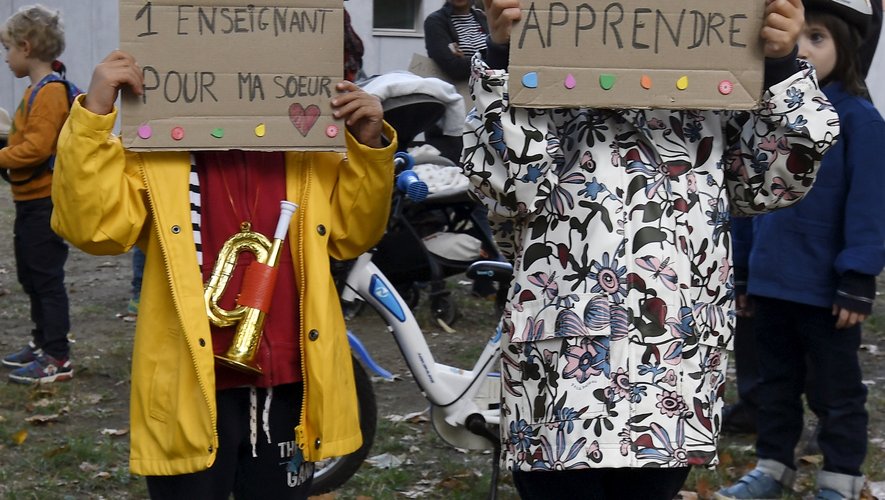The majority first-level union Snuipp-FSU 31 condemns, in a press release, the “deterioration of staff working conditions” and calls for a strike. He also points out the problem of replacement: every day forty classes would be without a teacher in Haute-Garonne.
The atmosphere is not very good in certain schools in Haute-Garonne, during this period when classes resume after the feast of All Saints. That’s what Snuipp-FSU 31, the majority elementary school teachers’ union, denounced in a press release following the Nov. 6 report by the Departmental Council on National Education (CDEN).
The union’s words are strong: “We have filed a social warning to denounce the catastrophic situation in the Haute-Garonne department in terms of resources, working hours and institutional mistreatment suffered by 1st-level staff,” they condemn.
“Less trained teachers”
The problem of replacing absent teachers is still current at the department. According to the education union, this is of the order of “an average of forty hours that are not replaced per day”. Even hiring teachers on a contract basis does not fill the gaps.
Almost 1,000 students were affected
Forty classes a day in which teachers are not replaced, “multiplied by 25 students on average, that means almost 1,000 students who are deprived of lessons,” says Snuipp 31 co-secretary Marie Gascard. “The employment of 220 untrained contract workers and 100 vacancies in the department undermines the functioning of teams in schools and the learning of students,” estimates Snuipp.
“Contract workers are not trained,” says Marie Gascard. We invite them and send them directly to the front of the class. They then have some training and are supported by the constituency, but that is not enough. » According to Marie Gascard, the lack of training does not only apply to contract workers.
“Teachers are less and less trained”
“We are welcoming more and more teachers from schools with less and less education, even with a master’s degree,” continues the trade unionist. Graduate trainee teachers entered the profession by alternating teaching and training at Inspe (National Higher Institute for Teaching and Education), now they have barely ten days of training and are sent directly to classes. »
Despite the drop in numbers in primary education this year, “Haute-Garonne remains, nationally, one of the departments with the highest staffing ratio,” the teachers’ union admits. With P/E – number of teaching places per 100 students, from 5.5 (5.45 in 2022). However, the union reminds, “the implementation of national priorities is done without the necessary funds and is not effective for all students.” This also results in increased class sizes at levels other than Mains, CP and CE1.
A call to strike…
To bring about the goal, Snuipp publishes a “call to strike”. The decision follows “after previous negotiations that took place on 18 October 2023 with the Academic Director of the National Education Services (Dasen)”. The strike notice runs from Monday, November 20 to Friday, July 5, 2024. “To enable primary school teaching staff, according to the majority union, Those Supporting Students with Developmental Disabilities (AESH) and National Education psychologists, who work in schools, educational institutions and specialized institutions for mobilization through strikes.
The strike, which is taking place after the union filed a “social alert condemning the catastrophic situation in the department”. The tone is set.
There is still a lack of AESH for inclusive schools
The educational inclusion of students with disabilities continues to suffer from a lack of specialized support staff (A ESH) in Haute-Garonne. During the Nov. 6 CDEN, FSU-Snuipp also reinforced its condemnation of the “lack of resources.” “Besides the beautiful spreadsheets with figures presented by the management, we have talked at length about the difficulties faced by staff in implementing an inclusive school, which is done without resources in terms of staff, training and structures”. According to the union, 220 students who were notified to use individual support and 665 students who benefit from joint support (one AESH for two or three students on average) have not had an AESH since the start of the school year in September. Snuipp calls for “AESH recognized for real status, real work, real pay with training to match the challenges”.

